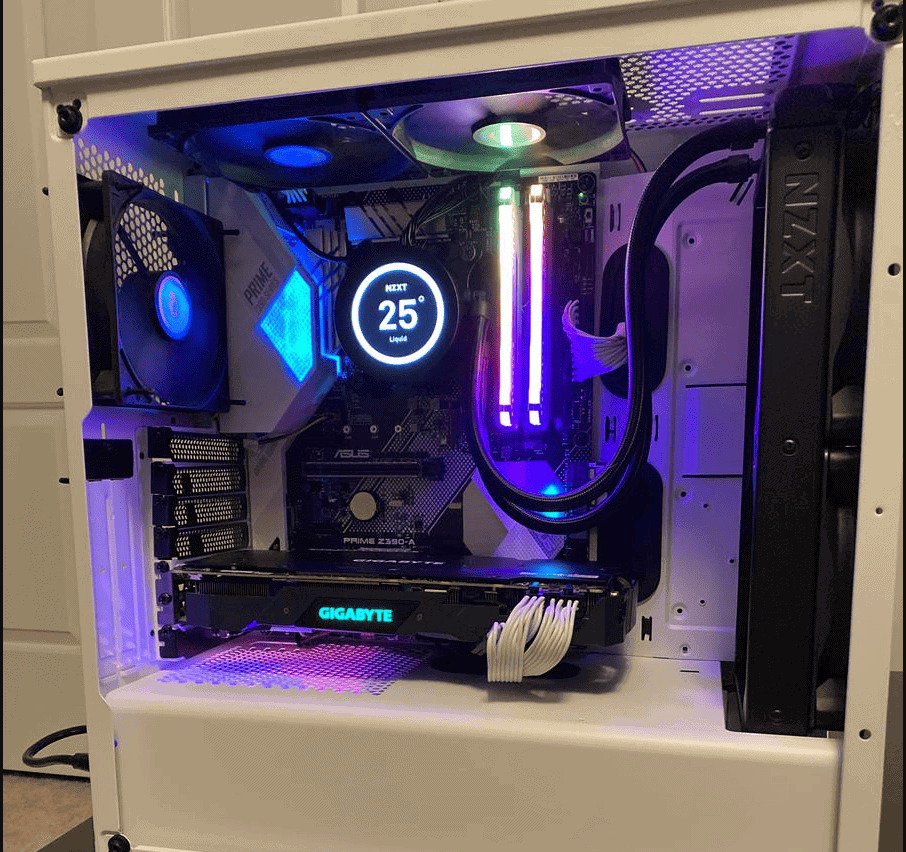Ready to elevate your gaming experience? Upgrading your PC can be straightforward. Whether you want smoother gameplay, faster loading times, or stunning visuals, this guide will help you understand the key components to consider and how to choose the right upgrades based on your needs and budget. Get ready to turn your rig into the ultimate gaming machine! Gaming PCs, like the dynamic worlds they power, are always evolving. As new games and technology emerge, upgrading becomes essential to enhance the overall gaming experience. This guide will lead you through the important upgrades that can transform your gaming PC from basic to beast mode.
Building the Ultimate Gaming Rig: A Guide to PC Upgrades
Choose Your Battles
Not every component needs a yearly refresh. Focus on parts that directly impact your gaming experience. A new graphics card can boost frame rates, while a faster SSD loads games quicker.
Central Processing Unit (CPU)
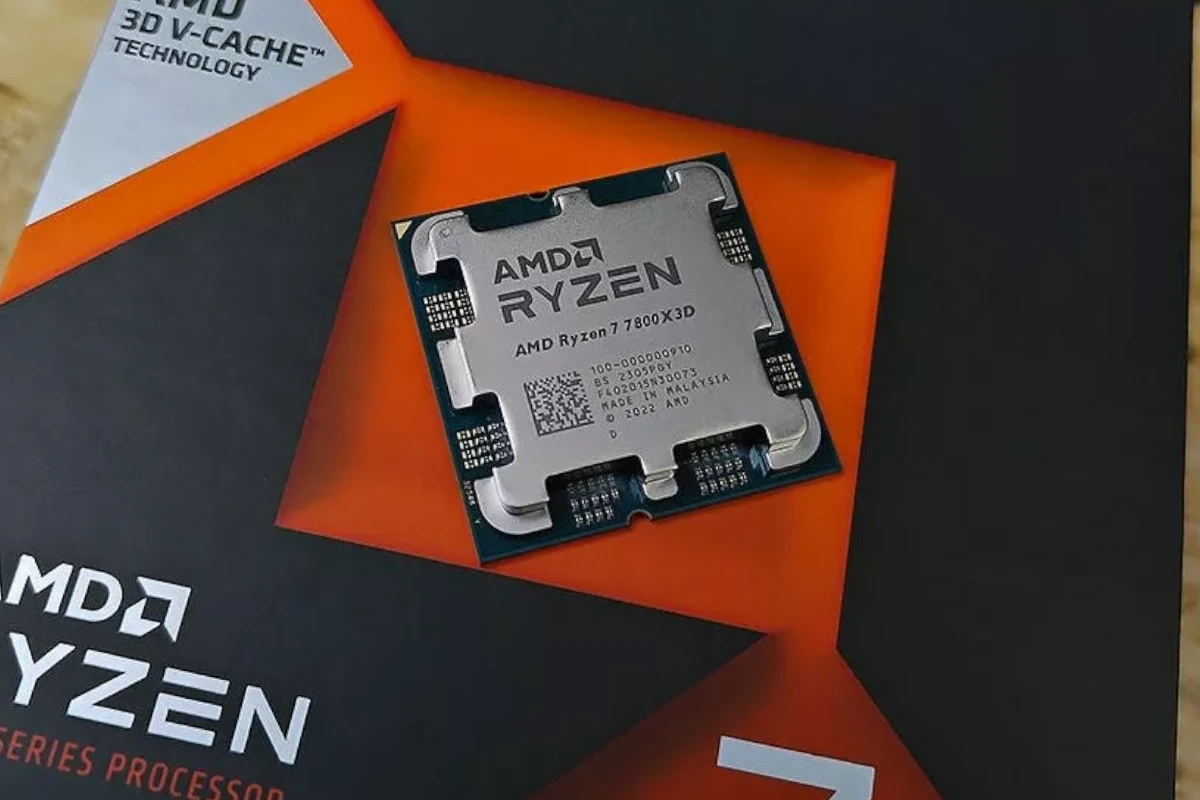
Your PC’s brainpower. A faster CPU handles more complex game calculations, improving overall performance. Check your motherboard’s compatibility before upgrading.
Key Specs:
| Core Count: | More cores mean better multitasking. |
|---|---|
| Clock Speed: | Higher speeds process instructions faster. |
Graphics Processing Unit (GPU)
Your PC’s visual powerhouse. A better GPU renders graphics faster and smoother, especially important for high resolutions and demanding games.
Key Specs:
| VRAM: | More VRAM handles higher resolutions and textures. |
|---|---|
| CUDA Cores/Stream Processors: | More cores mean better parallel processing. |
Random Access Memory (RAM)
Your PC’s short-term memory. More RAM lets your PC run more programs and handle larger game worlds without slowing down.
Key Specs:
| Capacity: | 16GB is a good starting point for modern games. |
|---|---|
| Speed: | Faster RAM (measured in MHz) can improve performance. |
Solid State Drive (SSD)
Your PC’s storage for games and programs. An SSD loads games and levels much faster than a traditional hard drive.
Key Specs:
| Capacity: | 500GB is enough for a few games, 1TB is a better long-term option. |
|---|---|
| Read/Write Speed: | Faster speeds mean faster loading times. |
Power Supply Unit (PSU)
Your PC’s energy source. A good PSU delivers stable power to your components, preventing crashes and damage. Choose a PSU with enough wattage to handle your upgrades.
Cooling
Keep your components cool for optimal performance and longevity. Options include air cooling (fans) or liquid cooling (radiators and pumps).
The Extras
Don’t forget about your monitor, keyboard, mouse, and headset. These can also impact your gaming experience.
Research is Key
Before buying any upgrades, research your options and check compatibility with your existing hardware. Read reviews and compare prices to find the best deals.
Installation
If you’re not comfortable installing components yourself, many computer shops offer upgrade services.
Enjoy Your Upgraded Rig!
With some careful planning and research, you can build a gaming PC that delivers an amazing experience for years to come.
How To Upgrade Your Gaming PC
| Component | Signs of Upgrade Need | Recommended Upgrades | Budget Considerations | Additional Tips |
|---|---|---|---|---|
| CPU | Lag, stuttering, frame drops at high settings, difficulty running new games | AMD Ryzen 7 7800X, AMD Ryzen 7 9700X, Intel Core i7-14700K | $300-$500 | Consider CPU cooler upgrade if overclocking. |
| GPU | Inability to maintain desired frame rate at desired resolution, low texture quality settings, struggling with AAA titles | AMD Radeon RX 7700 XT, NVIDIA GeForce RTX 4070 | $400-$1000 | Ensure PSU wattage is sufficient for new GPU. |
| RAM | Frequent game crashes, memory leaks, long loading times | 16GB (minimum) – 32GB DDR5 | $80-$200 | Choose CL16 or lower latency for performance. |
| Storage | Slow loading times, insufficient space for new games | 1TB+ PCIe 4.0 NVMe SSD | $100-$200 | Consider migrating system to SSD for performance boost. |
| Motherboard | Compatibility issues with new CPU/GPU, limited features | B650M/B760 chipset ATX board for mid-range, Z790/X670 for high-end | $150-$400 | Choose board with features you need (e.g., Wi-Fi, USB-C). |
| Cooling | High CPU/GPU temperatures, excessive fan noise | AIO liquid cooler for CPU, additional case fans for better airflow | $50-$200 | Ensure cooler compatibility with CPU socket. |
| PSU | Insufficient power for new components, instability under load | 750W Bronze certified (minimum) for mid-range, 850W+ Gold certified for high-end | $80-$200 | Choose reputable brand with modular cables for easier installation. |
Additional Notes:
- Upgrade priorities can vary depending on your specific needs and budget. Focus on the component causing the most bottleneck first.
- Research compatibility between components before purchasing. Websites like PCPartPicker can help.
- Consider used components for saving money, but ensure reliability and warranty coverage.
- Regularly update drivers and BIOS for optimal performance and stability.
- Don’t forget peripherals like monitor, keyboard, and mouse if needed for a complete upgrade.
Supercharging Your Gaming Rig: A Deep Dive into PC Upgrades
Prioritizing Your Upgrades
Not all upgrades are created equal. Some will give you a much bigger boost in performance than others. Here’s a general order of importance:
- Graphics Card (GPU): This is usually the most impactful upgrade for gamers. A better GPU means smoother gameplay, higher resolutions, and better visual effects.
- Solid State Drive (SSD): An SSD dramatically speeds up loading times, making your whole system feel snappier.
- RAM: More RAM allows you to run more programs and handle bigger game worlds without slowdowns.
- CPU: A faster CPU improves overall performance, especially in CPU-intensive games.
- Motherboard: Upgrade your motherboard if you need support for a new CPU or want features like faster RAM or more PCIe slots.
Benchmarking Your System
Before you upgrade, it’s a good idea to benchmark your current system. This gives you a baseline to compare against after you’ve made changes. Popular benchmarking tools include:
- 3DMark: For testing graphics performance.
- Cinebench: For testing CPU performance.
- UserBenchmark: For an overall system performance test.
Overclocking for Extra Performance
Overclocking means pushing your CPU or GPU beyond their factory settings to get more performance. This can be a great way to squeeze extra power out of your components, but it also carries some risks. If you’re not careful, you could damage your hardware or make your system unstable.
Troubleshooting Upgrade Issues
Sometimes, upgrades don’t go as smoothly as planned. Here are a few common issues and how to fix them:
- Driver Conflicts: Make sure you have the latest drivers for your new components.
- BIOS Settings: Check your BIOS settings to ensure they are optimized for your new hardware.
- Compatibility Issues: Double-check that all your components are compatible with each other. Websites like PCPartPicker can help.
Future-Proofing Your PC
When upgrading, try to choose components that will last for several years. This means looking for things like:
- CPUs with many cores and high clock speeds.
- GPUs with plenty of VRAM.
- Motherboards with support for the latest technologies.
Visual Guides and Comparisons
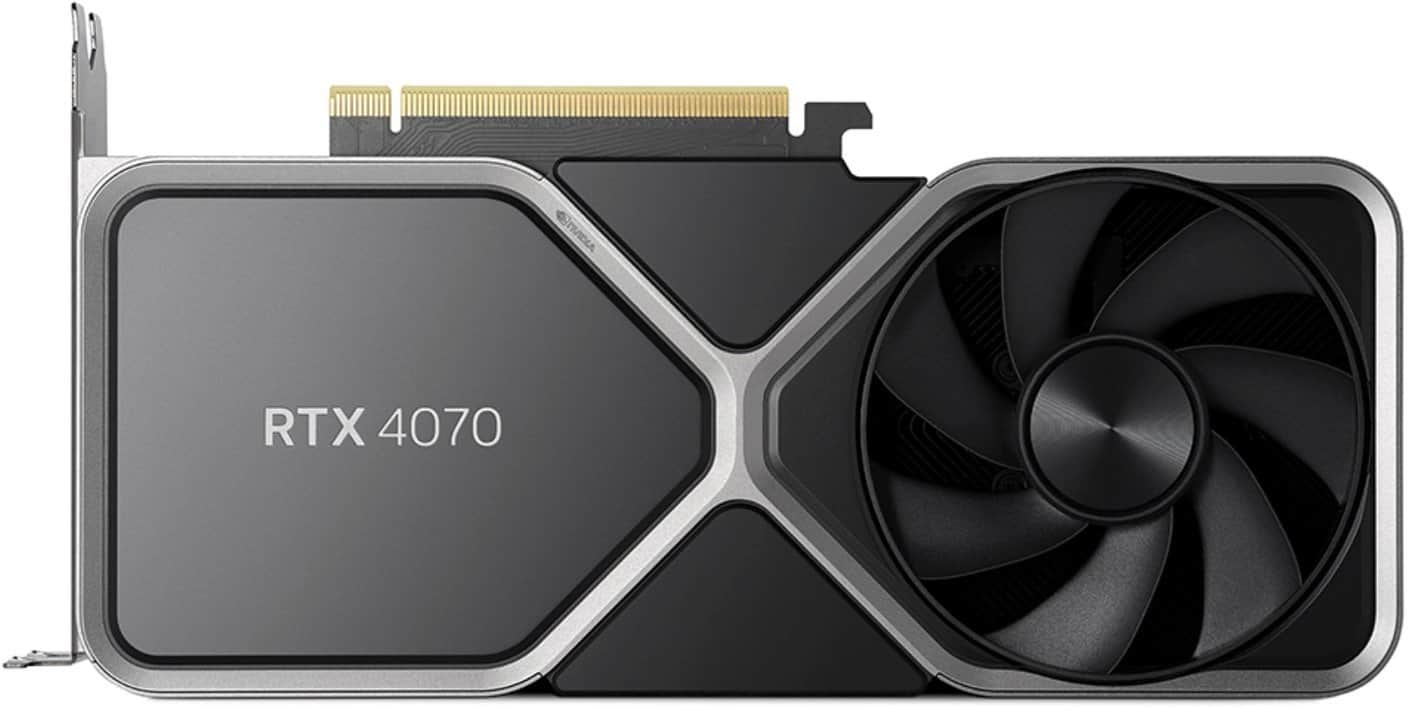
Here’s a table comparing different graphics cards to help you choose the right one:
| GPU | VRAM | Performance | Price |
|---|---|---|---|
| NVIDIA RTX 4090 | 24GB | Excellent | High |
| AMD RX 7900 XTX | 24GB | Excellent | High |
| NVIDIA RTX 4080 | 16GB | Very Good | Mid-High |
| AMD RX 7900 XT | 20GB | Very Good | Mid-High |
| NVIDIA RTX 4070 | 12GB | Good | Mid-Range |
Remember to consider your monitor’s resolution and refresh rate when choosing a GPU.
Detailed Upgrade Instructions
Installing a New Graphics Card:
- Power down your PC and unplug it.
- Open your PC case.
- Remove your old graphics card.
- Install your new graphics card in the PCIe slot.
- Connect the power cables to your new graphics card.
- Close your PC case and plug it back in.
- Install the latest drivers for your new graphics card.
Case Upgrades and Peripherals
A good case with plenty of airflow is important for keeping your components cool. Consider upgrading your case if you’re adding high-performance components or if your current case has poor airflow.
Don’t forget about your peripherals! A high refresh rate monitor, a comfortable gaming mouse, and a responsive keyboard can significantly improve your gaming experience.
Software Optimization and Operating System
Optimizing your software settings can also boost performance. This includes things like adjusting in-game graphics settings, closing unnecessary background programs, and keeping your drivers up to date.
Consider using a gaming-optimized operating system. Some versions of Windows are specifically designed for gaming, and there are also Linux distributions that are popular among gamers.
Interactive Tools and Community Input
Interactive tools can help you choose compatible upgrades based on your current system. Many websites offer compatibility checkers and build guides.
Sharing your upgrade experiences and learning from others can be incredibly helpful. Join online forums or communities to discuss upgrades, ask questions, and get advice from other gamers.
By following these tips and doing your research, you can upgrade your gaming PC effectively and enjoy a smoother, more immersive gaming experience.
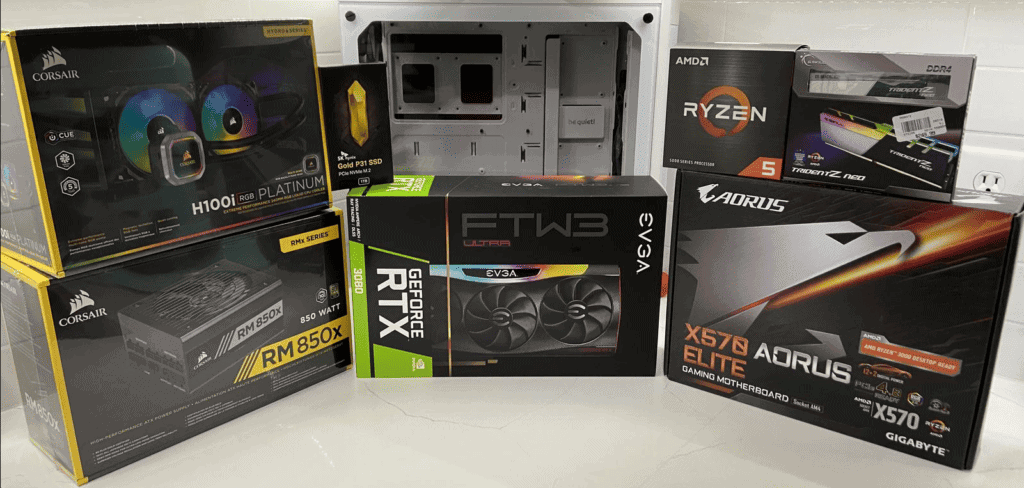
The Heart of Performance: Upgrading Your Graphics Card
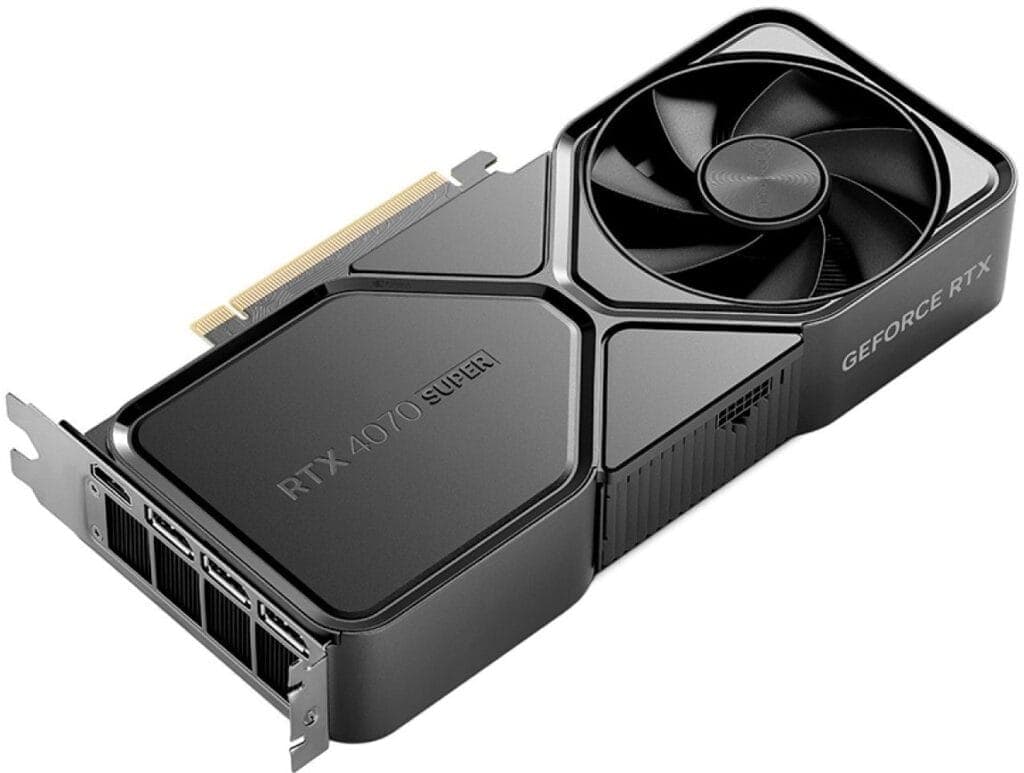
Upgrading your graphics card is like giving your PC a new set of eyes. The graphics card is pivotal in rendering the complex visuals of modern games. A high-quality GPU, like the GeForce RTX 3080, can catapult your gaming experience to new heights, ensuring smooth frame rates even in graphically intense games. Remember, compatibility with your motherboard and the balance with other components is key to unlocking the full potential of a new GPU.
Speed Matters: SSD Over HDD
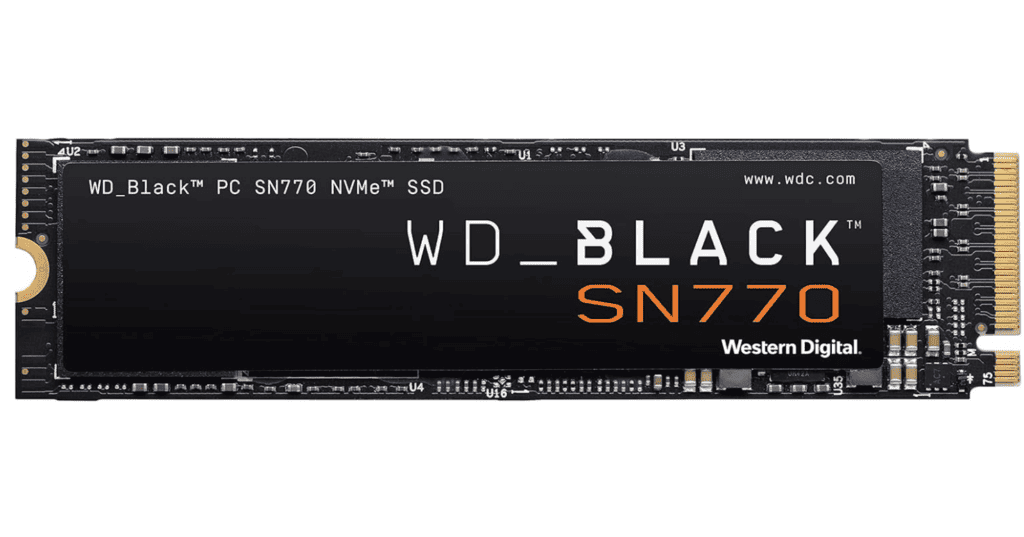
Replacing your HDD with an SSD is like shifting from walking to sprinting. The enhanced speed and reliability of SSDs dramatically reduce game load times and improve overall system responsiveness. Brands like Samsung offer affordable options like the 860 EVO 500GB, balancing cost and performance. For optimal results, consider a dual-setup with a smaller SSD for your OS and an HDD for additional storage.
Memory Upgrade: Boosting Your RAM
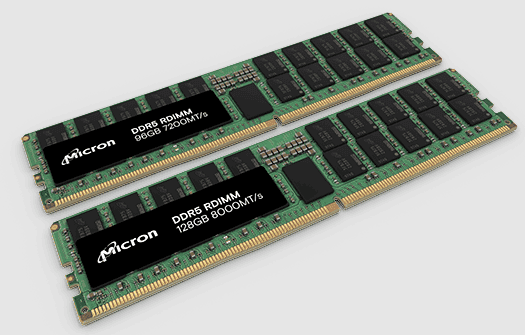
More RAM in your gaming PC is like having a bigger desk – more space to work efficiently. Upgrading your RAM, to say 16 GB, can significantly impact your gaming and multitasking abilities. It’s a cost-effective and straightforward upgrade, allowing for smoother gameplay and better handling of memory-intensive applications.
The Core Upgrade: Processor and Motherboard
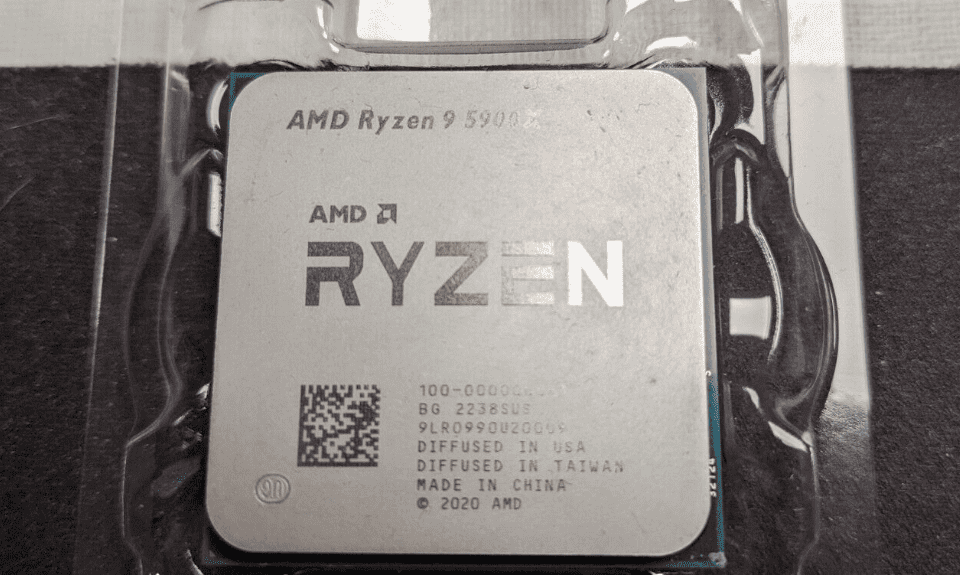
The processor is the brain of your PC, and upgrading it can rejuvenate your entire system. However, this upgrade often requires a compatible motherboard, making it a more complex and costly endeavor. Consider this upgrade if your current CPU significantly bottlenecks your gaming performance. Brands like AMD and Intel offer competitive options like the Ryzen 5 5600X and Intel Core i7 10700K.
Keeping Cool: Upgrading Your Cooling System

A robust cooling system keeps your gaming PC’s performance stable and extends its lifespan. Upgrading to an efficient air cooler or a liquid cooling solution can help maintain optimal temperatures, especially if you’re pushing your system with overclocking. This upgrade not only enhances performance but also reduces noise, making for a more pleasant gaming environment.
Visual: Monitor Upgrades
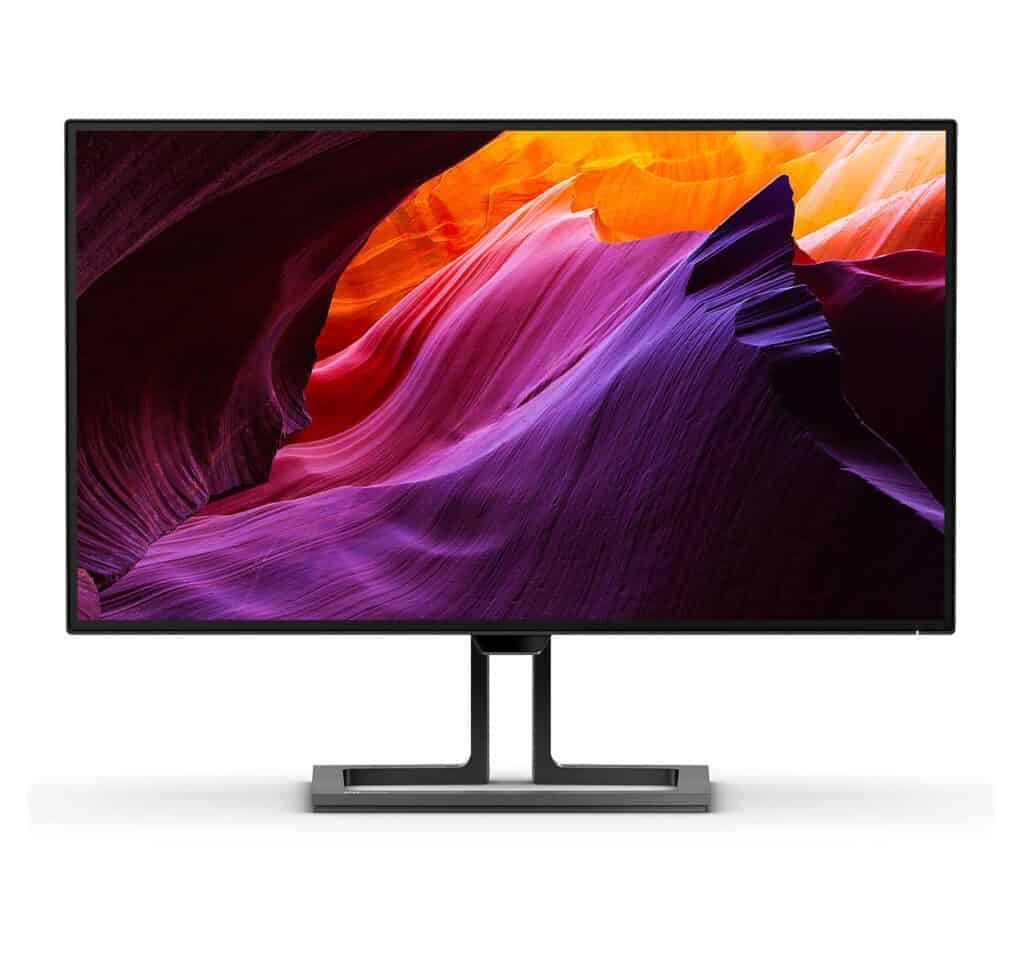
Elevating your monitor can transform your visual experience. Upgrading from a standard 60Hz monitor to a GSync, 144Hz+ monitor, especially at 1440p resolution, offers a dramatic improvement in image quality and fluidity. This upgrade is particularly impactful for fast-paced games, where higher frame rates translate to smoother gameplay.
Peripheral Power: Desk, Chair, and More
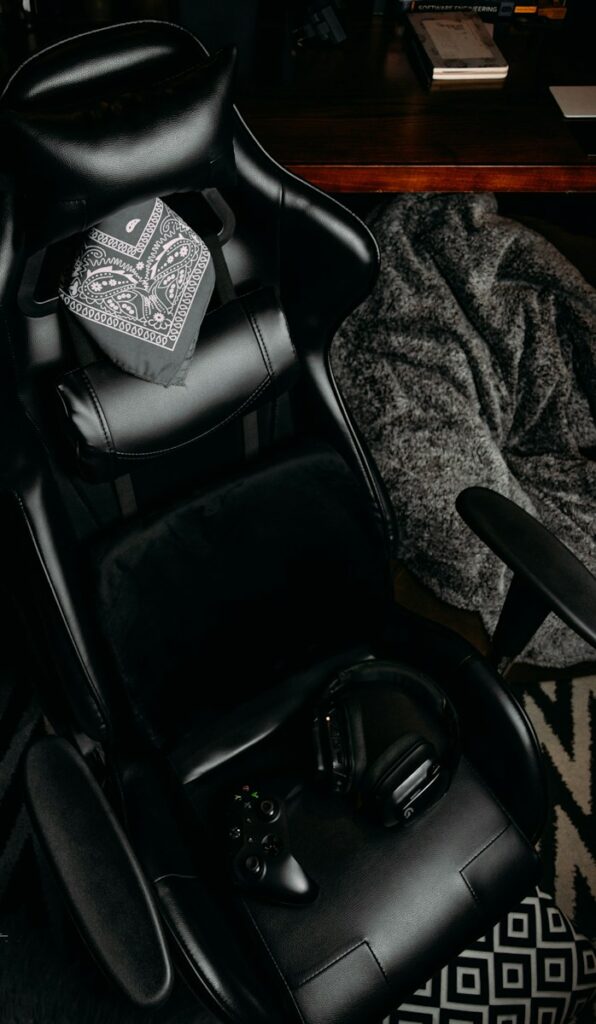
While often overlooked, peripherals like your desk, chair, keyboard, and mouse play a significant role in your gaming experience. Upgrading to a comfortable chair, a spacious desk, and high-quality gaming peripherals can enhance your comfort and performance during long gaming sessions.
Insights From Around The Web
The world of gaming PC upgrades is vast and varied, echoing the voices of numerous enthusiasts who share their experiences online. From Reddit’s bustling communities, we’ve gathered a treasure trove of insights, opinions, and real-world advice that adds a human touch to the technicalities of upgrading a gaming PC.
Personal Journeys in Upgrading
Gaming enthusiasts often share their personal upgrade stories, reflecting a range of experiences. One Redditor, for instance, discussed upgrading from a GTX 1050 and an Intel Core i5-10300H to a prebuilt PC with an RTX 3060. This upgrade, aimed at enhancing their gaming experience for titles like ‘Ark Ascended,’ highlights the importance of aligning upgrades with gaming needs and preferences.
The Debate: Prebuilt vs. Custom
The age-old debate of prebuilt PCs versus custom builds continues. On Reddit, users actively discuss the merits of each. For many, the allure of prebuilding lies in convenience and warranty, while others advocate for custom builds, emphasizing the satisfaction of assembling a PC tailored to specific needs. This dichotomy underlines the fact that the best choice depends on individual preferences, budget, and technical know-how.
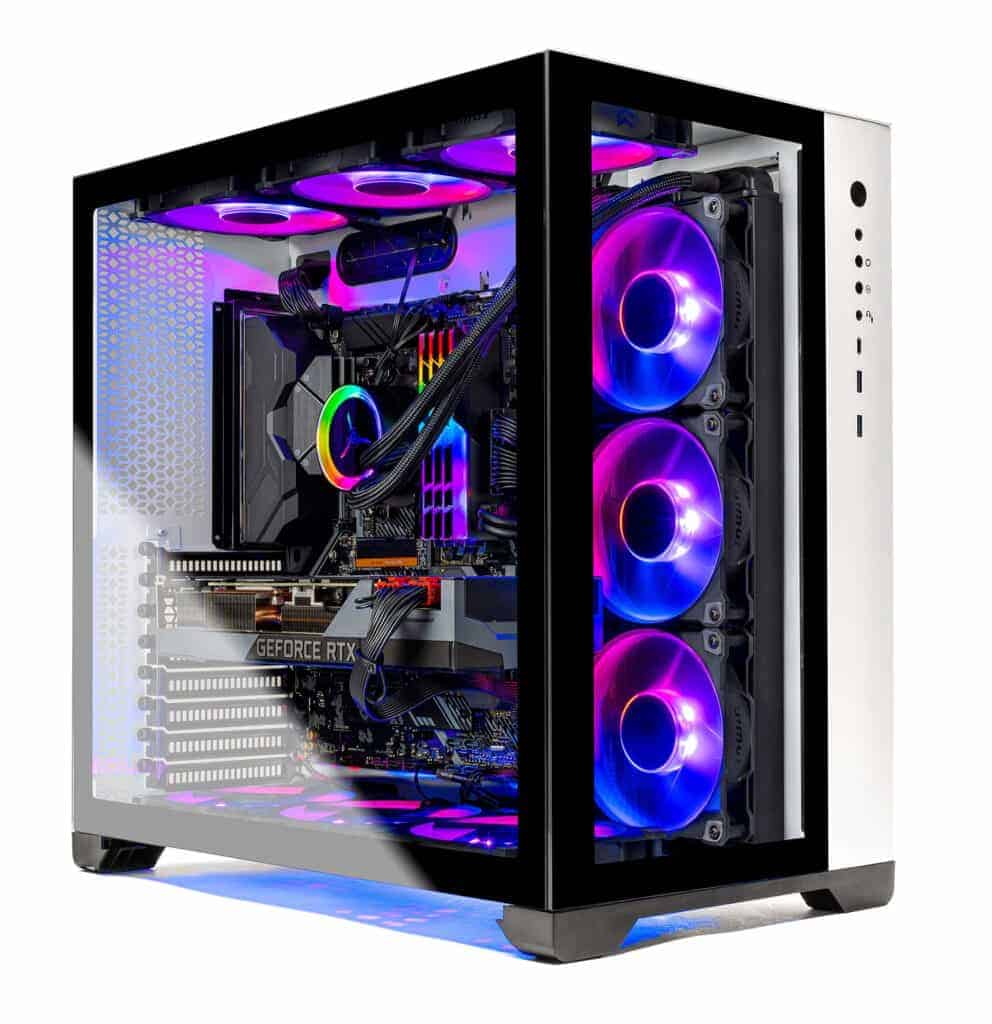
Upgrading Graphics Cards: Real-World Scenarios
Graphics card upgrades are a hot topic. A user’s query about the optimal GPU for games like Tarkov and Red Dead Redemption 2 sparked discussions about the need for stable fps at specific resolutions. The consensus is that the right GPU varies based on individual gaming requirements and the existing system’s capabilities, illustrating the personalized nature of upgrading.
The Lifespan of a Gaming PC
How long should a gaming PC last? Opinions vary, with some Redditors advocating for part replacements as needed, while others suggest a full upgrade every 5 to 6 years. This variety in approaches shows that there’s no one-size-fits-all answer, with decisions often driven by individual usage, performance requirements, and advancements in technology.
Motherboard and CPU Considerations
The motherboard and CPU are pivotal in a gaming PC. Discussions on Reddit reveal that while some gamers prioritize GPU upgrades, others focus on the motherboard and CPU for overall performance improvements. The key takeaway is that these components are fundamental to a PC’s capabilities and should be chosen based on the desired balance between performance and budget.
Cost-Efficiency and Performance
In the quest for an optimal gaming setup, balancing cost and performance is crucial. One user shared an insightful tip about using Intel 100 & 200 series boards with a QTJ2 CPU as a cost-effective upgrade, highlighting the potential of creative solutions in maximizing both performance and value.
Peripheral Upgrades: Enhancing the Experience
Beyond internal components, peripheral upgrades can significantly enhance the gaming experience. Upgrading to a higher refresh rate monitor or better-quality gaming mouse and keyboard can lead to noticeable improvements in gameplay. These changes often offer a cost-effective way to elevate the gaming experience without overhauling the entire system.
The Community’s Role
The role of the gaming community in guiding upgrades is invaluable. From sharing experiences to offering advice, the community serves as a resource for both novice and seasoned gamers. Whether it’s discussing the merits of SSDs over HDDs, the importance of RAM, or the latest in cooling systems, the collective wisdom of the community provides a rich source of knowledge and support.
Final Thoughts
Ultimately, upgrading a gaming PC is a journey unique to each gamer. It’s about understanding personal needs, staying informed about the latest advancements, and making choices that align with individual goals and budgets. The shared experiences and insights from the gaming community add depth to this journey, making the process not just about the hardware but about being part of a passionate, ever-evolving world of gaming enthusiasts.
Summary of Facts
- Graphics Card Upgrade: Key for visual performance; balance with other components for optimal results.
- SSD Over HDD: Significant speed boost in game load times and system responsiveness.
- RAM Upgrade: More RAM equals smoother gameplay and better multitasking.
- Processor and Motherboard Upgrade: Consider if CPU is a bottleneck; requires compatibility check.
- Cooling System Upgrade: Essential for temperature control and system longevity, especially when overclocking.
- Monitor Upgrade: Higher refresh rates and resolutions enhance visual experience.
- Peripheral Upgrades: Enhances comfort and interaction with your gaming environment.
FAQ
What’s the most impactful upgrade I can make to my gaming PC?
Upgrading your graphics card generally offers the most significant improvement in gaming performance, especially in graphically intensive games.
How does upgrading from HDD to SSD affect my gaming experience?
Switching to an SSD dramatically reduces game load times and improves overall system responsiveness, making for a smoother gaming experience.
Is it necessary to upgrade both my processor and motherboard?
Upgrading the processor might require a compatible motherboard, especially for significant performance boosts. Consider this upgrade if your current CPU is significantly hindering your gaming performance.

